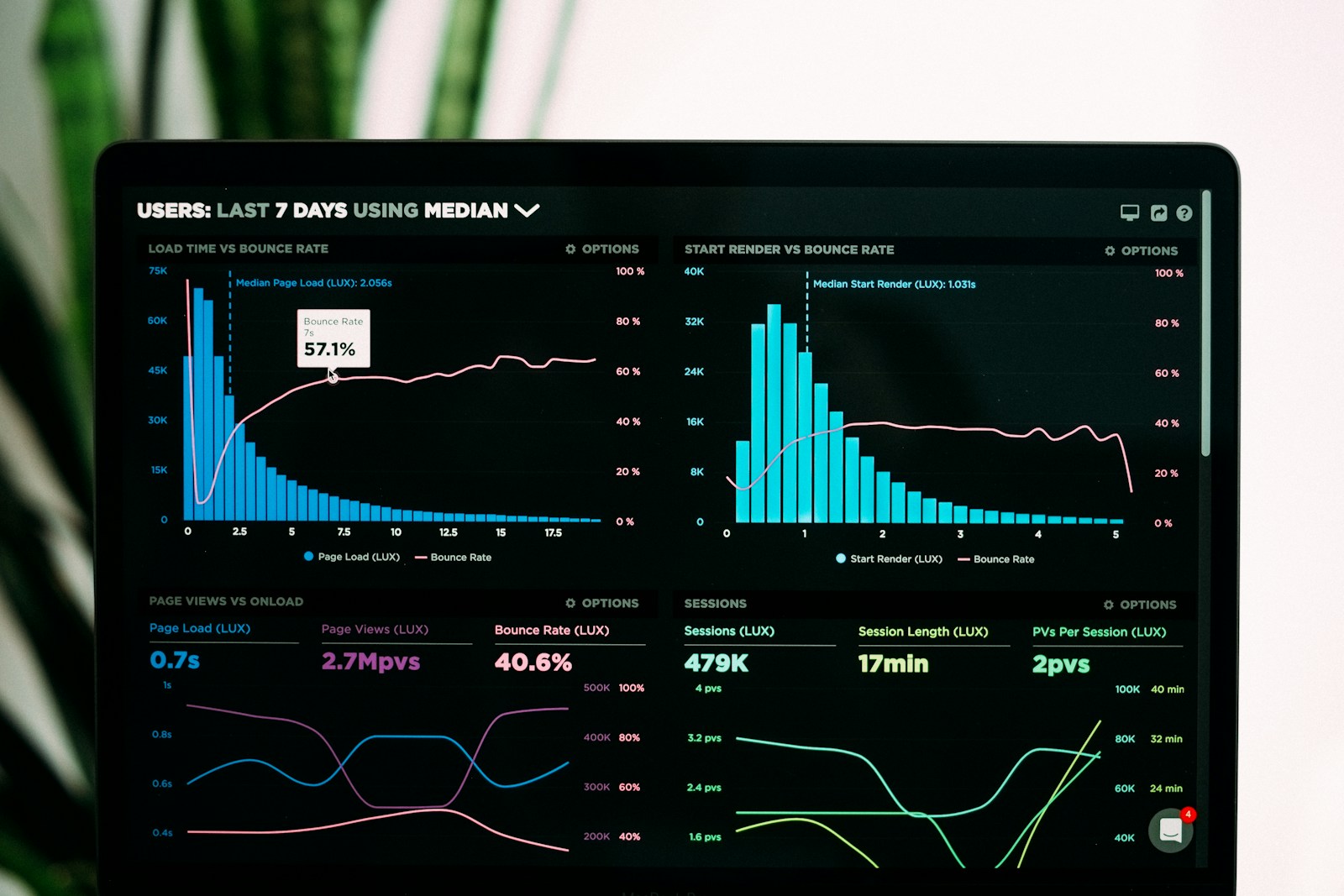Microsoft Data Analyst Jobs Requirements
Are you interested in pursuing a career as a Microsoft Data Analyst? To excel in this role, there are certain requirements you need to meet. Here are the key qualifications and skills you’ll need to become a successful Microsoft Data Analyst:
Educational Background
To start your career as a Microsoft Data Analyst, you will typically need at least a bachelor’s degree in a relevant field such as computer science, information technology, mathematics, statistics, or a related discipline. Some employers may also consider candidates with a strong background in data analysis and programming, even without a formal degree.
Technical Skills
A deep understanding of Microsoft’s suite of data analytics tools is vital for this role. Proficiency in Microsoft Excel, SQL, Power BI, Azure Data Lake, and Azure Analysis Services is highly desirable. Additionally, familiarity with programming languages like Python, R, or SAS can give you an edge in the competitive job market.
Analytical Mindset
As a Microsoft Data Analyst, you will be responsible for interpreting complex data and deriving meaningful insights. Having a strong analytical mindset is crucial. You should be comfortable working with large datasets, conducting statistical analysis, and using data visualization techniques to communicate your findings effectively.
Problem-Solving Skills
Data analysis involves identifying and solving complex problems. As a Microsoft Data Analyst, you should possess excellent problem-solving skills. You should be able to approach challenges from different angles, think critically, and come up with innovative solutions to improve business processes and decision-making.
Communication and Collaboration Skills
While technical skills are important, effective communication is equally crucial. As a Microsoft Data Analyst, you will often need to collaborate with cross-functional teams, including business stakeholders and fellow data professionals. Clear and concise communication, both verbally and in written reports, is key to ensuring proper understanding and successful implementation of data-driven insights.
Continuous Learning
The field of data analytics is constantly evolving. To stay relevant and excel in your career, you must be willing to adapt and keep up with the latest technologies and trends in data analysis. Proactively seeking learning opportunities, attending industry conferences, and obtaining relevant certifications can help you gain a competitive advantage and demonstrate your commitment to professional growth.
By meeting these requirements and continually honing your skills, you can position yourself for a rewarding career as a Microsoft Data Analyst. So, if you’re passionate about working with data and uncovering valuable insights, start building the necessary skills and qualifications to embark on this exciting career path!

Salary Range for Microsoft Data Analyst Jobs
The Salary Range for Microsoft Data Analyst Jobs
When considering a career as a Microsoft Data Analyst, one crucial aspect that comes to mind is the salary range. Understanding the potential earnings in this field can help professionals set realistic expectations and plan their financial future accordingly. The salary range for Microsoft Data Analyst jobs varies based on factors such as experience, location, and the specific responsibilities of the role.
In general, a Microsoft Data Analyst can expect to earn a competitive salary. The average salary for a Microsoft Data Analyst ranges from around $60,000 to $100,000 per year. However, it is important to note that this range can increase significantly for professionals with extensive experience and advanced skills in data analysis.
Experience plays a vital role in determining salary. Entry-level data analysts in Microsoft can expect to earn a starting salary on the lower end of the spectrum. As they gain more experience and demonstrate their expertise in the field, their earning potential increases. Professionals with several years of experience can earn salaries in the higher range, especially if they have a proven track record of delivering valuable insights and actionable recommendations.
Location is another factor that affects the salary range for Microsoft Data Analyst jobs. Major metropolitan areas and tech hubs tend to offer higher salaries due to the increased demand for skilled data analysts. For example, data analysts working for Microsoft in cities like Seattle, San Francisco, or New York generally earn higher salaries than those in smaller cities or rural areas. Cost of living also plays a role in determining salaries, as companies often adjust compensation to account for variances in living expenses.
Additionally, the specific responsibilities and skills required for a Microsoft Data Analyst position can influence salary offers. Candidates with specialized skills such as data modeling, data visualization, or programming languages like SQL or Python may command higher salaries. Experience with Microsoft’s suite of data analytics tools, such as Power BI and Azure, can also lead to more lucrative job offers.
The salary range for Microsoft Data Analyst jobs can vary based on factors such as experience, location, and specialized skills. Entry-level professionals can expect salaries in the lower range, while those with extensive experience and in-demand skills can earn salaries on the higher end. Location, particularly major tech hubs, also plays a role in determining compensation. By considering these factors, aspiring Microsoft Data Analysts can gain a better understanding of the potential earnings in this field and make informed career decisions.
READ ALSO: Google Data Analyst Jobs
Skills and Qualifications for a Microsoft Data Analyst
With the growing demand for data analysis in various industries, the role of a Microsoft Data Analyst has become increasingly important. Data analysts play a crucial role in helping organizations make informed decisions based on data insights. To excel in this role, individuals need to possess a certain set of skills and qualifications. Here are some key skills and qualifications required to become a successful Microsoft Data Analyst:
1. Technical Skills: A strong foundation in Microsoft Excel is essential for a Microsoft Data Analyst. Proficiency in utilizing Excel’s advanced features, such as pivot tables, data modeling, and macros, is crucial for data analysis and visualization. In addition, knowledge of SQL (Structured Query Language) for data extraction and manipulation is highly beneficial. Familiarity with programming languages like Python or R would also be advantageous.
2. Data Analysis Skills: A Microsoft Data Analyst should possess a deep understanding of statistical analysis methods and be able to apply them to real-world datasets. Strong analytical skills, including data mining, data cleaning, and data modeling, are essential. The ability to identify trends, patterns, and insights from complex datasets is crucial for providing valuable recommendations to stakeholders.
3. Business Acumen: To be effective as a data analyst, it’s crucial to have a solid understanding of the business context in which the data analysis is being performed. This includes understanding the industry, the organization’s goals and objectives, and the key performance indicators (KPIs) relevant to the business. By incorporating business knowledge into data analysis, a Microsoft Data Analyst can provide meaningful insights that drive business growth.
4. Communication Skills: Data analysts must be able to effectively communicate their findings to both technical and non-technical stakeholders. Strong verbal and written communication skills are required to convey complex data concepts in a clear and concise manner. Presentation skills are also important for delivering compelling data insights to senior management or clients.
5. Problem-Solving Abilities: Data analysts often encounter complex problems that require innovative solutions. The ability to think critically, develop hypotheses, and troubleshoot data-related issues is crucial for success in this role. Being able to approach problems from different angles and experiment with different data analysis techniques is highly valued.
6. Continuous Learning: The field of data analysis is constantly evolving, with new tools, techniques, and technologies emerging regularly. A successful Microsoft Data Analyst needs to be committed to continuous learning and staying updated with the latest developments in the field. Keeping abreast of industry trends and investing in professional development opportunities, such as certifications or training programs, is key to maintaining proficiency.
To excel as a Microsoft Data Analyst, individuals need a combination of technical skills, data analysis expertise, business acumen, communication abilities, problem-solving capabilities, and a commitment to continuous learning. By acquiring and honing these skills and qualifications, aspiring data analysts can position themselves for a successful and fulfilling career in this growing field.

Advantages and Disadvantages of Working as a Microsoft Data Analyst
Working as a Microsoft Data Analyst offers numerous advantages and opportunities, but like any profession, it also has its drawbacks. If you are considering a career in this field, it’s important to weigh both the advantages and disadvantages to make an informed decision. Let’s explore some of the key benefits and challenges of being a Microsoft Data Analyst.
Advantages:
1. High Demand: The demand for skilled data analysts is continuously growing, and Microsoft Data Analysts are no exception. With the increasing reliance on data-driven decision-making in businesses of all sizes and industries, there is a consistent need for professionals who can effectively analyze and interpret complex data.
2. Lucrative Salary: Data analysts, particularly those with expertise in Microsoft technologies, are often well-compensated for their skills. The salary range for Microsoft Data Analysts can vary depending on factors such as experience, location, and industry. However, it is generally considered to be above average compared to many other professions.
3. Career Growth: As a Microsoft Data Analyst, there are ample opportunities for career growth and advancement. With the ever-evolving nature of technology and the constant need for data analysis, there is room for professional development and specialization within this field.
4. Varied Industry Options: Data analysis is a versatile skill that can be applied to various industries such as finance, marketing, healthcare, and more. As a Microsoft Data Analyst, you have the flexibility to work in different sectors and gain exposure to diverse business environments.
Disadvantages:
1. Continuous Learning: Technology is constantly evolving, and data analysts need to stay updated with the latest tools and techniques. This can require continuous learning and professional development to ensure proficiency in Microsoft technologies and keep up with industry trends.
2. Pressure and Deadlines: Data analysis often involves working under tight deadlines and handling large volumes of data. This can lead to high-pressure situations, requiring analytical accuracy and attention to detail.
3. Repetitive Tasks: A significant portion of a Microsoft Data Analyst’s job involves repetitive tasks such as data cleaning, preprocessing, and organizing. While these tasks are crucial for accurate analysis, they can become monotonous over time.
4. Security and Confidentiality Concerns: Dealing with sensitive and confidential data is a common aspect of being a Microsoft Data Analyst. It is essential to adhere to strict data privacy regulations and take necessary precautions to ensure data security.
Ultimately, working as a Microsoft Data Analyst offers a rewarding and challenging career path. By understanding the advantages and disadvantages, you can make an informed decision and determine if this profession aligns with your skills, interests, and goals.
Microsoft Data Analyst Job Outlook and Career Growth Opportunities
As businesses continue to rely on data to drive decision-making, the demand for skilled data analysts is on the rise. Microsoft data analyst jobs offer promising career growth opportunities and a positive job outlook for aspiring professionals in the field. Let’s take a closer look at the job outlook and career growth opportunities for Microsoft data analysts.
Microsoft data analyst jobs are projected to experience significant growth in the coming years. With the increasing emphasis on data-driven decision-making, organizations across various industries are expanding their analytics capabilities. This creates a growing demand for skilled data analysts who can extract valuable insights from large datasets and provide actionable recommendations to drive business performance. As a result, professionals pursuing a career as a Microsoft data analyst can expect a wide range of job opportunities in diverse industries such as technology, finance, healthcare, and more.
Moreover, Microsoft data analysts can enjoy exciting career growth opportunities. Starting as a data analyst, professionals can progress to roles such as senior data analyst, data scientist, or data analytics manager. These higher-level positions come with added responsibilities, leadership opportunities, and increased earning potential. With the continued advancements in data analytics technologies and techniques, there is potential for further specialization within the field, allowing data analysts to focus on specific areas such as machine learning, artificial intelligence, or predictive modeling, depending on their interests and career goals.
Another advantage of pursuing a career as a Microsoft data analyst is the opportunity to work with cutting-edge tools and technologies. Microsoft offers a comprehensive suite of data analytics tools, including Excel, Power BI, Azure Data Factory, and Azure Machine Learning. These tools enable data analysts to manipulate and visualize data effectively, build sophisticated analytical models, and deploy advanced analytics solutions. By gaining proficiency in these tools, professionals can enhance their skill set and increase their value in the job market.
While Microsoft data analyst jobs offer exciting growth opportunities, it is essential to consider the potential challenges as well. One of the disadvantages of working as a data analyst is the heavy reliance on data and the need for meticulous attention to detail. Data analysts must ensure data accuracy, perform rigorous data validation, and maintain data integrity throughout the analytical process. Additionally, the field of data analytics is highly competitive, and as the demand for skilled professionals increases, the competition for job positions might also intensify.
Pursuing a career as a Microsoft data analyst can be a rewarding choice with a positive job outlook and ample career growth opportunities. The increasing demand for data-driven insights and the expanding role of data analytics in organizations makes this field highly promising. With continuous learning and upskilling in Microsoft’s data analytics tools and technologies, professionals can excel in their careers as they navigate the evolving landscape of data analytics.
Conclusion
In the rapidly evolving digital landscape, the role of data analysts has become increasingly crucial for organizations across various industries. As this article has highlighted, Microsoft data analyst jobs offer exciting opportunities for individuals with the right skills and qualifications. These professionals play a vital role in analyzing large volumes of data, extracting valuable insights, and helping businesses make informed decisions.
To excel in a Microsoft data analyst role, candidates must possess a strong educational background in fields such as mathematics, statistics, computer science, or a related discipline. Additionally, proficiency in data analysis tools, and programming languages such as SQL and Python, and experience with Microsoft products like Excel, Power BI, and Azure are highly advantageous.
While the salary range for Microsoft data analyst jobs may vary based on factors such as location, experience, and level of responsibility, these positions typically offer competitive compensation packages. With salaries ranging from $60,000 to over $100,000 per year, data analysts can enjoy a fulfilling and financially rewarding career within the Microsoft ecosystem.
However, it is important to consider both the advantages and disadvantages of working as a Microsoft data analyst. On the positive side, these professionals can benefit from job security and stability, as well as opportunities for career growth and professional development. They are at the forefront of innovation with access to cutting-edge technology offered by Microsoft. Moreover, the demand for skilled data analysts is expected to continue growing, providing a wealth of job prospects in the future.
On the other hand, the role of a data analyst can be demanding. It often involves working with vast amounts of complex data, requiring meticulous attention to detail and problem-solving skills. The pressure to extract actionable insights and deliver accurate results within tight deadlines can be challenging. Additionally, the job may involve occasional long hours or the need to adapt to evolving technologies and methodologies.
Looking ahead, the job outlook for Microsoft data analysts remains positive. As organizations become increasingly data-driven, the need for skilled professionals who can derive valuable insights from complex datasets continues to grow. The career growth opportunities within the Microsoft ecosystem are vast, with prospects for senior data analyst roles, management positions, and specialization in areas such as machine learning and artificial intelligence.
Microsoft data analyst jobs offer exciting prospects for individuals with the right skills and qualifications. These roles provide competitive salaries, job stability, and opportunities for career growth. While the job may come with its challenges, the demand for skilled data analysts is expected to increase, ensuring a bright future in this dynamic field. As businesses increasingly rely on data to drive decision-making processes, Microsoft data analysts will continue to play a vital role in shaping the success of organizations around the world.
Originally posted 2024-02-03 17:50:39.



